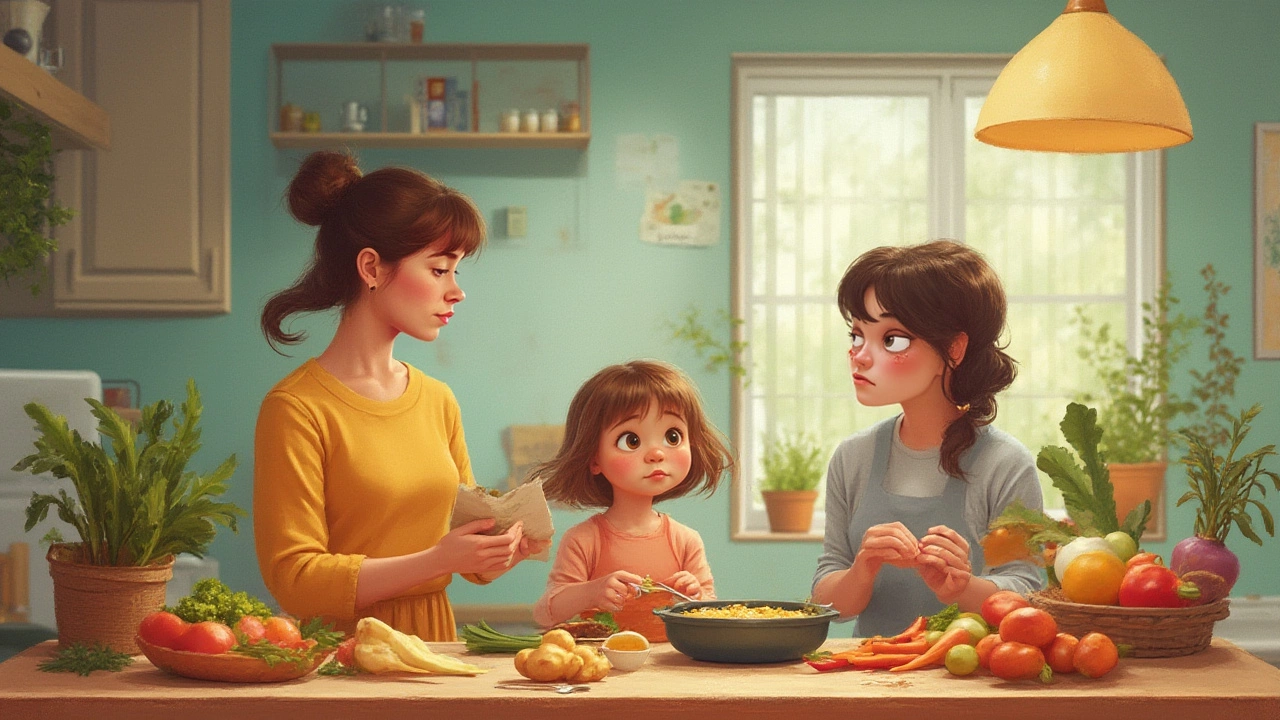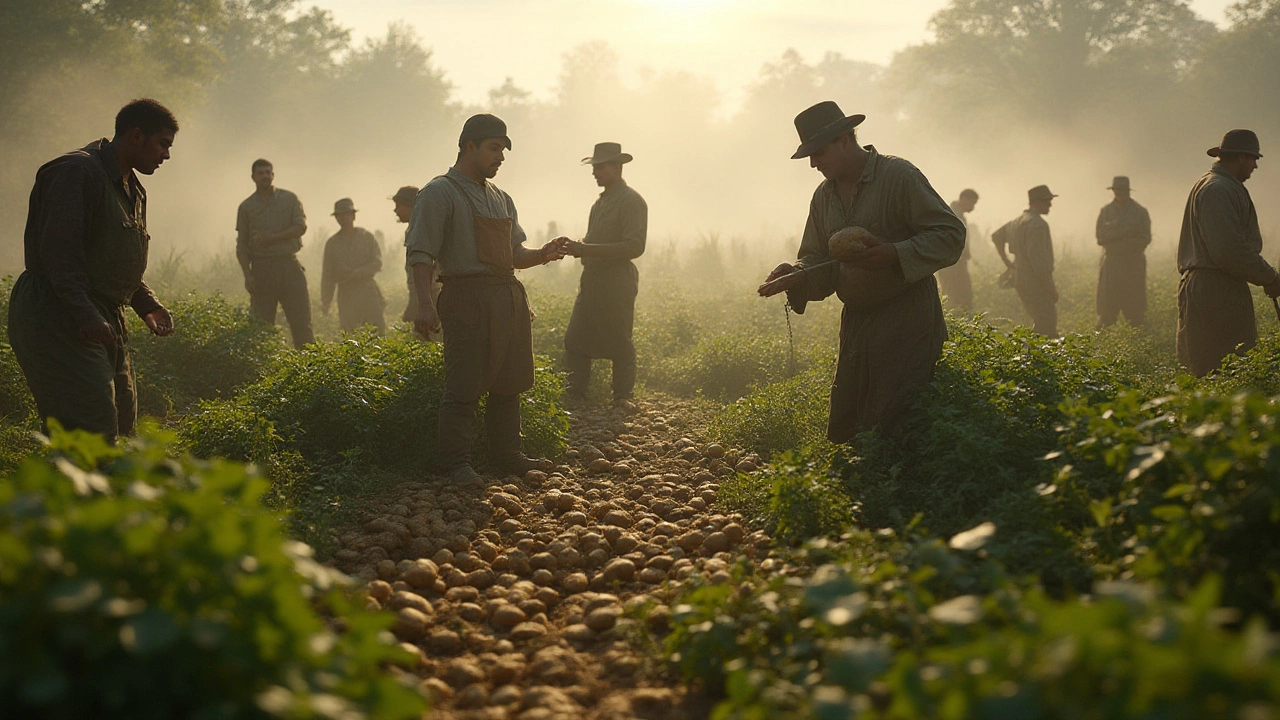If you ask ten vegans if potatoes are vegan, most will shout a quick yes and wonder why you’d even ask. But dig a little deeper, and things get a bit weird. Potatoes seem like the ultimate inoffensive vegetable, but some vegans avoid certain spuds or feel uneasy about mass potato farming—and honestly, there’s a good reason. Want to know the details hiding beneath that innocent potato skin? Prepare to rethink everything you know about this vegetable and vegan food in general.
Potatoes: The Veggie We Thought We Knew
Honestly, nobody’s going to look at a potato and scream "animal!"—these guys grow in the dirt. Potatoes are tubers, not creatures, and they definitely don’t have faces. They’re a staple in plant-based diets, filling, cheap, comforting. Now, if you’re new to veganism or just never thought about it, this sounds simple: a potato is just a potato, right? Botanically, potatoes are plant matter, plain and simple. They’re starchy roots bursting with vitamin C, potassium, and a ton of complex carbs. In cultures across the world, potatoes are the backbone of meals. There’s literally an International Potato Center (yes, it’s a thing, in Peru) focused on potato farming and research to address global hunger.
But let’s pause on the vibe that potatoes are just boring filler. The real shock twist comes not from the tuber itself, but how modern agriculture grows them. That’s where the vegan thing gets muddy. The idea of being vegan is to avoid animal products—simple, yeah? But the world is a messy place, and food isn’t always what it seems on the surface. The farming industry is sneaky. Sometimes, animal-based materials end up in unexpected places, right down on your rustic potato fields. Ever wondered what keeps potato plants free from gnats, slugs, and soil diseases?
The Not-So-Vegan Side of Potato Farming
This is where things get controversial. Some major potato farms in North America and Europe have come under the microscope for their use of animal-based inputs. Here’s the uncomfortable truth: a lot of large-scale agriculture relies on animal-derived fertilizers. These include manure, bone meal, blood meal, fish emulsion—you name it. Check the fine print on many bags of commercial fertilizer and you’ll see those ingredients. The 2023 report by the Food and Agriculture Organization listed bone meal and manure among the most common soil additives for potatoes, as they give rapid boosts to plant growth.
Manures are common because they recycle nutrients, but for many vegans, using cow dung, chicken litter, or fish emulsion is a total no-go. Organic potato farming isn’t always better—most "organic" fields substitute chemical fertilizer for—guess what? More manure or fish products. And then there’s pest control. Rabbit repellents, slug baits, and even some fungal sprays can contain animal products or animal testing. There’s even a farming practice called "fish hydrolysate irrigation,” especially popular in Ireland and the UK, which uses processed fish as a potato soil supplement.
“Majority of commercially grown potatoes in North America make use of animal-based fertilizers, which raises a significant concern for ethical vegans.” — Dr. Emma Lloyd, University of British Columbia, Journal of Agronomy, 2024
And, yes, even vegan-labelled products can use potatoes that came from these farming systems. You won't usually see that on a label. It’s technically not an animal product once harvested—the potato itself remains plant matter. Yet, for vegans drawn to systemic change (not just animal-free ingredients), this adds a layer of complexity to that innocent mashed potato.
| Fertilizer Type | Animal-Based? | Commonly Used in Potato Farming? |
|---|---|---|
| Chemical NPK | No | Sometimes |
| Manure | Yes | Very Common |
| Bone Meal | Yes | Common (Organic) |
| Fish Emulsion | Yes | Regional (Europe/Canada) |
| Compost (Plant-Based) | No | Occasionally |

Processed Potatoes – Hidden Ingredients and Factory Secrets
You might just boil your potatoes, give them a sprinkle of salt, and call it a day. But the vast potato industry doesn’t. Frozen fries, hash browns, potato chips—most processed potatoes risk even more animal-based sneaks. Fast food fries, for example, sometimes contain beef fat. The classic McDonald’s US fries still use natural beef flavoring in the oil (it’s on their ingredients list—no guessing needed). Some potato chips include cheese powder (derived from milk) or even chicken-fat flavoring.
Then there are the enzymes. Many potato products, especially boxed mashed potatoes and ready-made gnocchi, are made with stabilizers and flavor enhancers. Mono- and diglycerides (sometimes used in chips and fries to maintain texture) can be derived from animal fat. Flavored potato snacks may contain non-vegan seasonings, like powdered milk, whey, or even dried egg. "Natural flavor" sounds harmless, but it’s a gray zone—it can be animal or plant-based. It’s not an accident that vegan eaters read labels like sleuths on a mystery novel quest.
Fast food chains love a cheap shortcut, and that often means using animal-based ingredients in places where you’d never expect. Even vegan-marketed products can sneak in animal traces via processing. A UK study in 2023 found that about 15% of potato-based snacks labeled as "suitable for vegans" contained trace milk proteins, due to cross-contamination in factory lines that also process dairy chips and snacks.
- If flavoring is vague, assume the worst—many “natural” flavor agents are animal-derived unless specified vegan.
- Frozen fries may be par-cooked in oils that include animal fat, especially if made for export markets with different regulations.
- Gnocchi lovers—watch for powdered egg or cheese, classic in Italian recipes.
- Even roasted potato seasoning can hide milk powder or beef extract in the mix.
Want to dodge these traps? Buy whole potatoes and cook them from scratch. That way, you control every single ingredient. If you buy ready-made, stick to products that are certified vegan—they’re more likely to be careful with ingredients and cross-contamination.
Tips for Vegan Potato Lovers: Making the Best Choices
So potatoes aren’t automatically the gold standard of vegan eating, but don’t panic. It’s totally possible to eat potatoes on a vegan diet—just takes some detective work and a bit of prioritizing. If you’re focusing on the broader vegan philosophy (minimizing animal harm systemically), the best move is to connect with local farmers. Ask about their growing methods. Some smaller-scale farms use plant-based compost or vegan-certified fertilizers, skipping manure and animal products entirely. A handful of suppliers worldwide market “veganic” potatoes—grown without a hint of animal-derived fertilizer or pest control.
Here are some practical tips for those who care deeply about the ethics of their spuds:
- Chat with your grocer or farmers’ market stall—ask about fertilizer sources and pest management on their potatoes.
- Check out veganic farming networks, such as the Vegan Organic Network (UK) or certified plant-based farms in the US and Canada.
- If you can’t find local sources, buy certified organic—but keep in mind this probably means manure-based compost and not fully vegan potatoes.
- Grow your own! Even a balcony garden can support a couple of potato plants in containers—and you’ll know exactly what’s gone into the soil.
- For processed potato foods: look for the official vegan label, not just plant-based claims.
And don’t let perfection paralyze your diet. The vast, tangled web of food sourcing means very few items, especially in commercial supermarkets, are grown 100% cut off from all animal inputs. The key is intention and progress, not some mystical state of “perfect veganism.” Do your best with the tools and info you have.
The more you know, the more empowered your choices become. Next time someone asks, "are potatoes vegan?"—you’ll know the honest, messy, fascinating truth.





